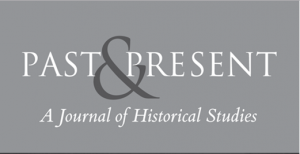Received from Dr. Camile Cole (Jesus College, Cambridge) and Dr. Peter Hill (Northumbria)
Key Details
Ottoman Political Economies, All day event, 14 Oct 2022 – 15 Oct 2022, Castlereagh room, St John’s College / SG1 Alison Richard Building, hosted by CRASSH
Programme
Summary
The Ottoman empire ruled a vast expanse of territory over six centuries. It was closely integrated into global trade networks and encompassed multiple forms of production, lifeways, and interactions between humans and non-human nature. The Ottoman state and its diverse subjects were constantly engaged in negotiating the allocation of resources, labour, and power. They developed sophisticated modes of producing wealth, collecting and withholding revenue and profits, labouring and directing labour, and defining property and the economic through law and custom.
The past few decades have seen growing interest in global history, the history of capitalism, and the political economy of the post-Ottoman Middle East. Yet the question of the Ottoman world’s relationship to concepts of ‘economy’ or ‘capitalism’ has been little studied and seldom theorised since the cultural turn among historians. What role did Ottoman spaces, actors, and resources play in the construction of global capitalism? Where and when did this occur within the empire’s wide geography and long history? Did the Ottoman empire have its own distinctive modes of political economy – and if so, how should these be conceptualised? How do Ottoman legal constructions, practices, and experiences of power, production, work, exchange, or the household broaden our theoretical vocabulary and our understanding of the history of capitalism more broadly?
Over the past few years, an exciting body of work has begun to emerge – particularly from early-career scholars – that addresses these and related questions. The Ottoman Political Economies workshop aims to bring together this work, enable conversations between scholars engaged in this subfield, and showcase it for a wider audience of economic and social historians, social scientists and anthropologists, and theorists of political economy. Overall, the workshop has two objectives: to view the Ottoman empire and its subjects through the lens of political economy; and to question the concepts of political economy and capitalism in the light of Ottoman experiences.


Leave a Reply
You must be logged in to post a comment.